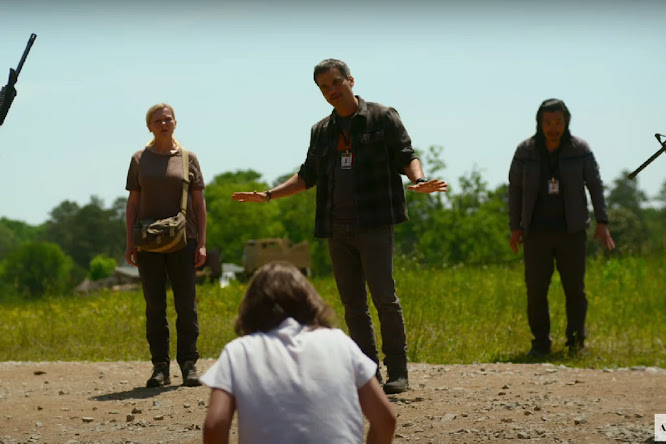 |
| The Criterion Collection's vividly red DVD cover with one of the titular character's iconic paintings for their release of Andrei Tarkovsky's Andrei Rublev |
Andrei Rublev is a religious biopic and a historical drama about the great, Russian icon painter, Andrei Rublev (1360s-1427/1430).
Written by Andrey Konchalovskiy (Paradise/Ray (1966)) and its Russian master co-writer/director Andrei Tarkovsky (Ivan's Childhood/Ivanovo detstvo (1962)) as his 4th film, it is an epic movie of around 200 minutes. It follows Rublev's life from the beginning of the 15th century, as he is ordered to leave by the great emperor. Later we witness mass death and despair, as Mongolian Tartar troops spread destruction and mayhem. Towards the end, the film is concentrated around the building of a massive church bell.
Andrei Rublev is a meditative and thought-provoking experience about God, creation, and life's inevitable tragedies. It was heavily censored and banned in its time, being made during the atheistic, repressive Soviet regime. Thank God the film has been preserved and is available today in all its splendor:
Tarkovsky's long shots, (cinematography by Vadim Yusov (The Black Monk/Chyornyy monakh (1988))), the universal themes that the film deals with and the Russian mud and rain spellbind the thinking viewer from first to last shot in Andrei Rublev, which ends in a mysterious, unforgettable horse scene. This is one of the weightiest masterworks of cinema.
Related post:
Andrei Tarkovsky: Top 10: The best biopic movies reviewed by Film Excess to date
Since production company Mos Film have made an effective ban on using their trailers and clips on websites like this one, instead I present here a documentary on Rublev's works
Cost: 1.3 mil. rubles
Box office: Unknown - but reportedly sold 2.98 tickets in the USSR
= Uncertain - but likely a box office success
[Andrei Rublev was first screened once in November 1966 (Moscow, USSR) and runs 205 minutes (original cut)/186 (director-approved second cut), and there have been also various other shorter versions released, which are not worth watching. Anatoliy Solonitsyn (Stalker (1979)), who plays Rublev, was an unknown theater actor, who read the film's script in a magazine and traveled to Moscow on his own expense, where he met Tarkovsky and declared that no-one could play the role better than him. Tarkovsky agreed and subsequently cast Solonitsyn in several of his films. Shooting took place in Russia, including Moscow, from May 1965 - May 1966. The small 1 mil. ruble budget required scenes be left unshot, and it didn't hold due to heavy snowfall. The studio and state demanded several cuts be made, disagreeing with its length, negativity, violence, nudity and historical accuracy and religion/ideology. SPOILER The burning cow in the film was not harmed, but the horse falling down the steps was sacrificed for the film; it was shot after the scene and taken away for consumption. The film was shown at the 1967 Cannes Film Festival, but only once on the last day, and at 4 AM, on the insistence of the reluctant Soviet officials. Its Soviet release didn't happen until 5 years after the film's completion, in 1971, as Tarkovsky refused to make more cuts to it. Tarkovsky reportedly remarked in his diary on the film's release that although not a single poster for the film had been put up in Moscow, all of its screenings were sold out: Rublev reportedly sold impressive 2.98 mil. tickets in the USSR. Details on its performance in other markets up through the 1970s are not available: It did gross 102k $ on its 2018 North American re-release. Tarkovsky favored the 186 minute version. The film is voted in at #203 on IMDb's user-generated Top 250, sitting between Before Sunrise (1995) and The Wages of Fear/Le Salaire de la Peur (1953). Tarkovsky returned with Solaris/Solyaris (1971). Solonitsyn returned in Anyutyna doroga (1968). Andrei Rublev is fresh at 95 % with an 8.84/10 critical average at Rotten Tomatoes.]
What do you think of Andrei Rublev?










No comments:
Post a Comment